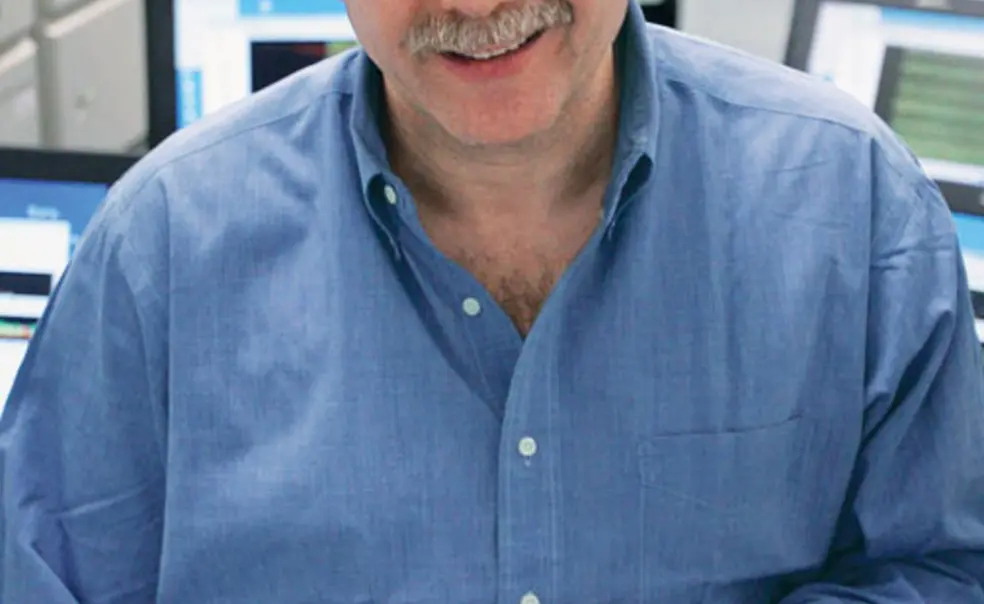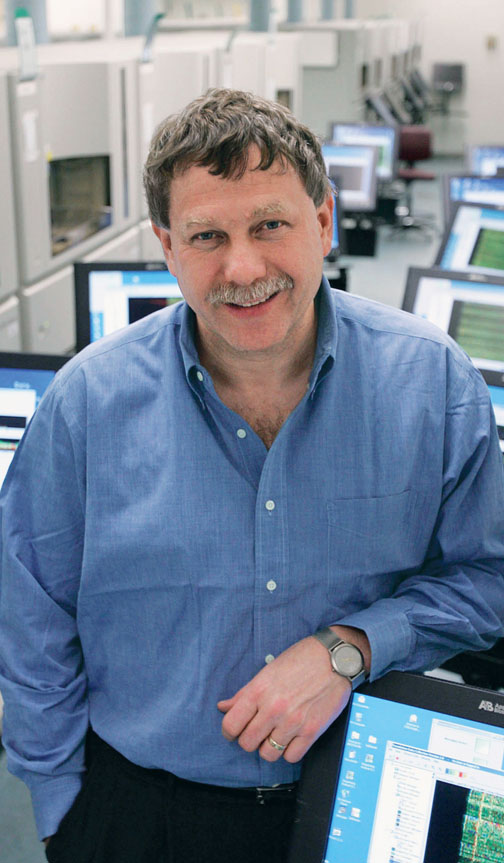A moment with ... Eric Lander '78
Geneticist Eric Lander ’78 studied math, not biology, as an undergraduate. But after earning a D.Phil. from Oxford in mathematics as a Rhodes scholar, and teaching economics at Harvard Business School, he was captivated by genetics. He audited a biology class, spent evenings cloning fruit-fly genes, and eventually won a MacArthur fellowship for his work. A leader of the Human Genome Project, which concluded in 2003, Lander is the founding director of the Broad Institute of MIT and Harvard University, which aims to improve medicine using genome-based knowledge. Last month, he was named co-chairman of the President’s Council of Advisers on Science and Technology. He spoke with PAW a few days before that announcement.
How has biology changed since you were an undergraduate?
Biology today looks nothing like it did when I was an undergraduate. Over the last quarter-century, biology has turned into an information science. There are so many problems in biology that can be approached by extracting massive amounts of information. You can figure out what genes drive a cancer by sequencing the whole genome of a tumor and comparing it to the normal genome of a person to see what has mutated. You can figure out what sequences in the genome play important functional roles by comparing human DNA with DNA from a mouse, rat, dog, even an aardvark, to see what evolution has chosen to conserve.
It’s very powerful, and the efficiency of DNA sequencing has grown over the last 20 years by about a millionfold. Compare that with Moore’s law for computer processors, which predicts that processors will become a thousandfold more efficient in two decades. It’s just mind-boggling.
How will this change medicine?
In the 20th century, we had little to no idea what genetic factors underlie diabetes or heart disease or asthma. The increasing likelihood is that we’re going to be able to discover, in a systematic way, the underlying molecular pathways that cause these diseases.
Treating disease without knowing the underlying molecular pathways is like trying to fix a car engine without being able to pop open the hood and see what’s wrong. I could well imagine that the students of 2050 will look back in a combination of bemusement and horror at the late 20th century and early 21st century and wonder how people expected to treat disease without knowing what was wrong. I do think that over the next couple of decades we will know the mechanisms that underlie disease, which will lead to a complete rewriting of the textbooks of internal medicine. Of course, understanding the cause does not guarantee a cure. But I believe that information-based biology will be the foundation on which really smart young people can build to treat disease.
What are some ways genetic information might be used?
Well, it’s like if someone 50 years ago asked, “What are computers going to be used for?” And the answer is, “Almost everything.”
What will genome analysis be used for? Any question involving living organisms. Want to monitor how an ecosystem is changing? Look at genetic changes in the organisms. How about history? Genetic research will give us the ability to see evolution laid out in its full glory, to see the relationships between species and how particular genes changed to confer different traits. There are genetic bread crumbs left along the trails of evolution. Genomics will become a routine tool for historians trying to reconstruct human migrational history. Large collections of information are powerful things.
What is your biggest concern about a dramatic increase in our understanding of genetics?
The greatest danger is a mistaken sense of genetic determinism — that people will think that because genes play a role in something, they determine everything. We see, again and again, people saying, “It’s all genetic. I can’t do anything about it.” That’s nonsense. To say that something has a genetic component does not mean it’s unchangeable. Environmental factors play a huge role. Some people are more susceptible to certain things, and understanding which people are more susceptible will point to the environmental influence.
What do the advances in genomics mean for future students?
I could imagine that, 15 or 20 years from now, Princeton students will go out and collect organisms of their choice and sequence their genomes as part of an introductory lab. I just love watching this next generation come along, which takes for granted this new world. Students today are not impressed by the Human Genome Project — it’s just part of the air to them, and that’s great.
Think of it this way — all life on this planet contains in its genomes the record of 3.5 billion years of evolution, the lab notebooks of evolution’s experiments, information about exposure to different infectious diseases, and so much more. It’s as if life has been keeping notes in its genomes on all these topics for 3.5 billion years, and this is the generation that finally gets to read these lab notebooks.
Interview conducted and condensed by Hilary Parker ’01













No responses yet